By Chen Zhan Source You’re worried about homeschooling the kids, you have a 9 AM…
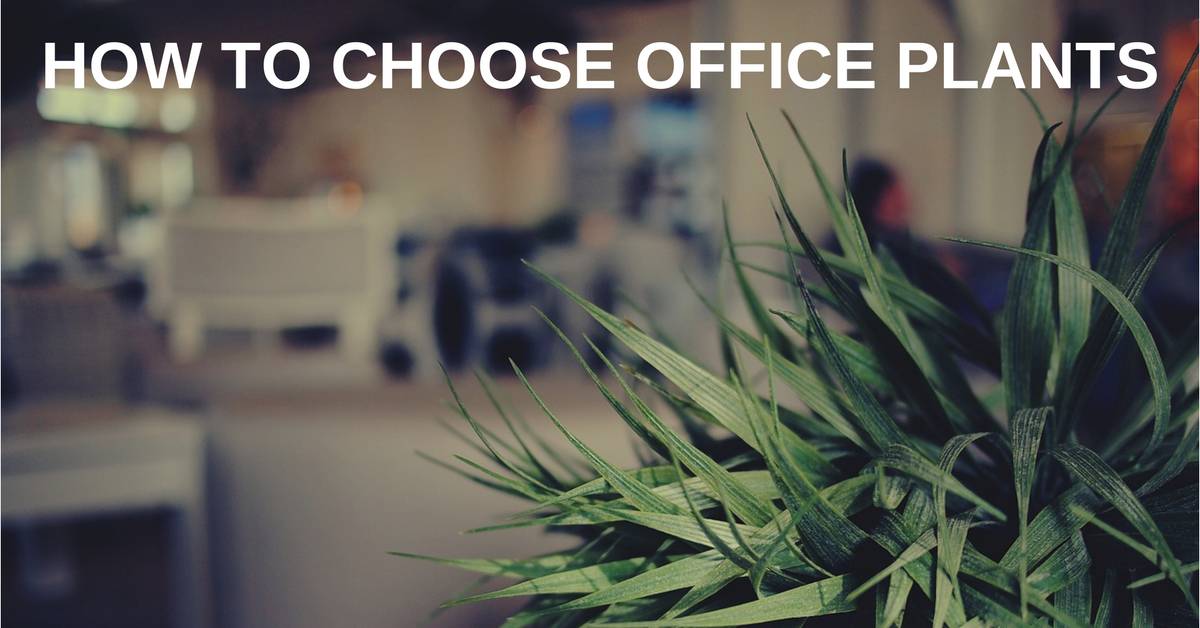
How To Choose Office Plants
Indoor plants can beautify any office space. They even purify the air, creating a cleaner, healthier environment. Believe it or not, there’s evidence that indoor plants can actually make you happier too.
Unfortunately, some plants require more upkeep than others, and not every plant is suited to every office environment. How do you know which plants are right your office? It really depends on 3 factors:
- How much sunlight they’ll be exposed to (if any)
- How much maintenance you want to take on
- Whether you care about air purification or just appearance
Based on your unique situation and office conditions, let’s look at a few great options for office plants.
Best Plants for Offices with Little or No Natural Light
Office spaces without much natural light can really benefit from a little greenery! In fact, those offices may be the ones that need indoor plants the most. These lovely green plants thrive in darker conditions:
English Ivy
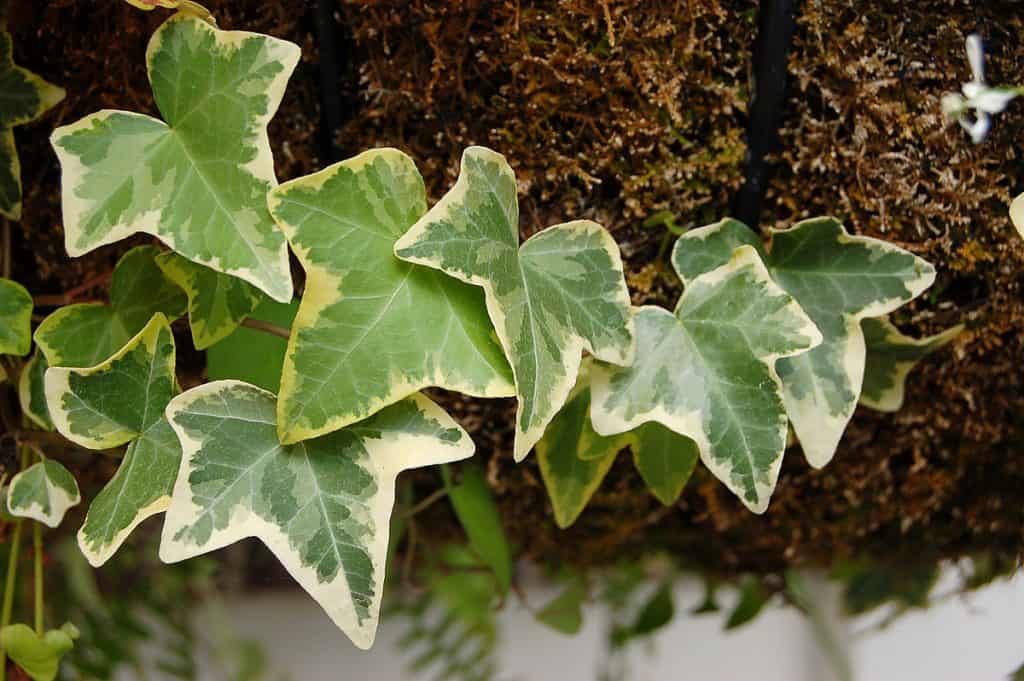
Photo: Derek Ramsey
Hedera helix (a.k.a. English Ivy) is easy to grow in almost any environment. It thrives in full shade but doesn’t mind some sunlight either. It purifies the air too. Studies have shown that it reduces mold, which helps everyone breathe easier — especially anyone with allergies.
English ivy looks great hanging in baskets or climbing up a trellis or pole. English ivy grows well in moist conditions, but it doesn’t like to sit in standing water or overly wet soil either, so be careful not to over-water.
Snake Plant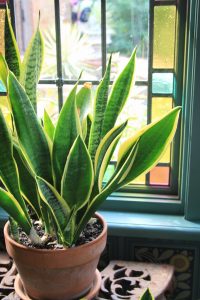
The snake plant may just be the perfect indoor plant. Sansevieria is one of the toughest and most tolerant plants you’ll ever find. It usually won’t wither even after being neglected for weeks at a time. It also doesn’t need much light or water.
Snake plants are also one of your best bets for air purification. They’re great for getting rid of toxins like formaldehyde and benzene.
Photo: Rhonda Fleming Hayes
Lemon Balm

Photo: color line
Lemon balm, or melissa officinalis, is a very versatile plant. It will grow in almost any soil and, though it prefers some sunlight, can survive happily in shade too. It’s very low maintenance, and experts recommend you don’t fertilize your lemon balm plant. Don’t forget to water it though!
As a bonus, lemon balm leaves produce a sweet lemon scent that will help freshen up your office in no time.
Spider Plant

Photo: David B. Gleason
Can you see why chlorophytum comosum has been nicknamed “the spider plant”?
This is another versatile option if you need a tough plant for a dark office. The spider plant does like some indirect light, but full-on bright sunlight isn’t necessary. These plants are easy to grow and hard to kill. Just make sure to let them dry out a bit between waterings.
They look great in a pot or hanging in a basket.
Best Indoor Plants for Sunny Spots
If you have a nice spot by the window for your plant, you might want something that thrives in natural light. Luckily, sun-loving plants are easy to find! Here are a few to consider:
Succulents and Cacti
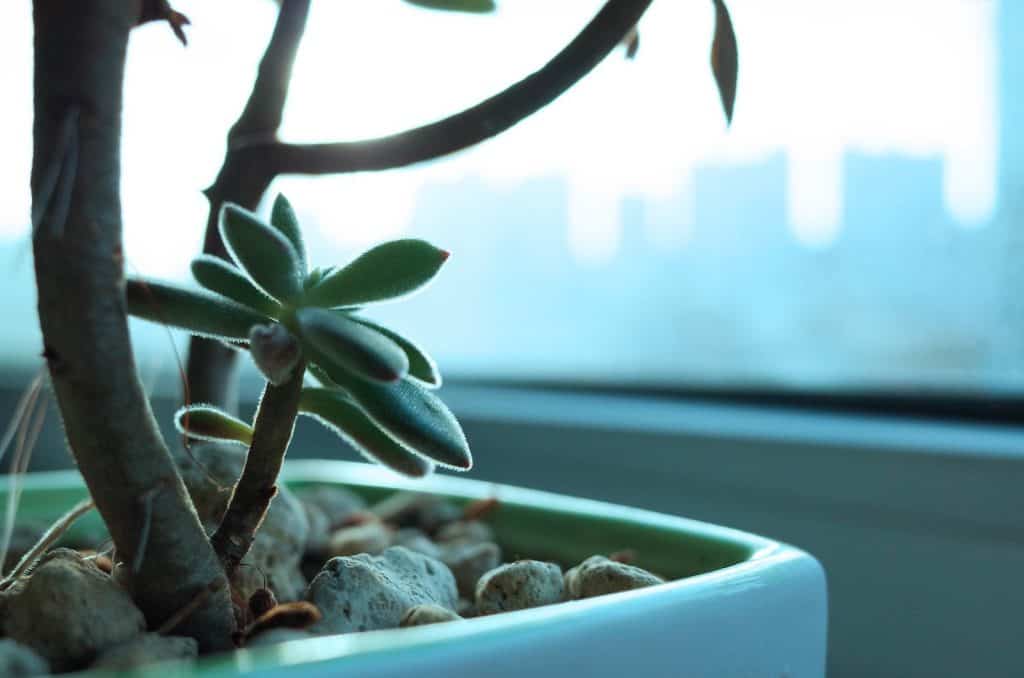
Cacti and other succulents are great because they require sunlight and not much else. They aren’t your best option for air filtration, but you only need to water them a tiny bit about once a week. There are many different kinds of cacti and succulents available. Jade is one of the most beautiful and most resilient.
Rubber Tree Plant

Photo: Maja Dumat
Rubber tree plants (ficus elastica) are great for removing indoor air pollutants, but they do require the right conditions. Indoor rubber tree plants need bright, and indirect light that isn’t too hot. You might want to place it near a window with sheer curtains, for example.
Experts also recommend you water your rubber tree plant more during growing season and less during the dormant season.
Great Indoor Plants for Reducing Pollutants
Several of the plants we’ve already covered are great for air filtration: English ivy, snake plants, spider plants, and rubber tree plants. Here are a few more:
Peace Lily

Photo: Tahmid Munaz
Chances are you’ve seen the peace lily in office buildings, waiting rooms, and hotel lobbies. That’s because spathiphyllum is beautiful, extremely resilient, and doesn’t need much water or direct light. To make sure it thrives, keep it in loose, rich soil and water every few days as necessary.
Did you know the peace lily is also one of the best plants for ridding your office of toxic agents like benzene, formaldehyde, trichloroethylene, xylene, toluene, and ammonia? It’s truly one of the best air-filtering plants out there.
Philodendron
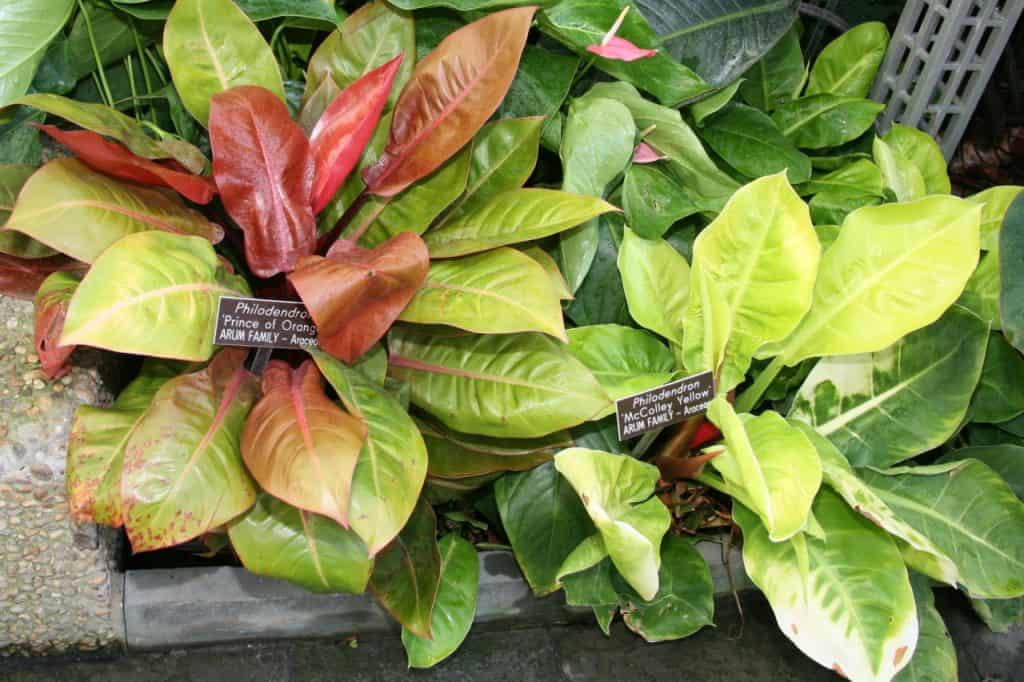
Photo: Cliff
This leafy green plant is extremely resilient and one of the best options for removing carbon dioxide and formaldehyde from the air. Studies show it can improve your cognitive function and focus at work.
Dracaena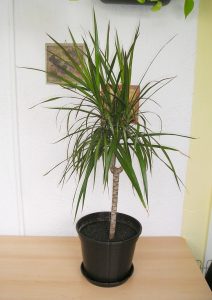
Dracaena plants are another great option for cleaning your office’s air of pollutants like benzene, formaldehyde, trichloroethylene, and more.
Just make sure you look into the different varieties of dracaena before you make a purchase — some types are small and others can grow quite large.
Photo: Maja Dumat
Best Indoor Plants for Very Small Spaces
When space is an issue, you need plants that don’t take up too much room and won’t grow out of control. Or maybe people want small plants for individual desks, cubicles, or offices.
Air Plants

Photo: amy gizienski
Air plants are the ultimate low maintenance plant. They don’t need soil to grow, and you don’t need to water them — just mist them a few times per week! You can display them on rocks in jars, wine glasses, or terrariums (like the one above). They do need to be open to the air, though. The tillandsia is a great, durable option.
Water Lettuce
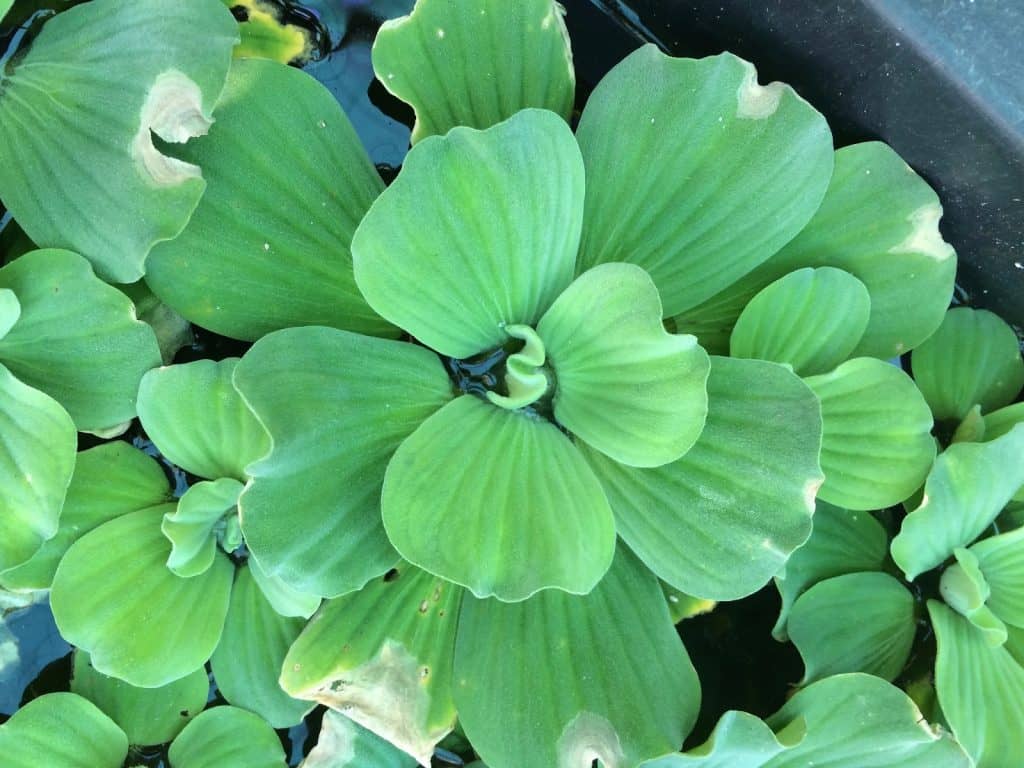
Photo: Scot Nelson
Pistia stratiotes, commonly called water lettuce, is another small plant that doesn’t need soil. As you might have guessed from its name, this plant loves water. It’s easy to grow floating in a vase or even in an open bowl with some decorative accessories.
African Violet

Photo: Wildfeuer
African violets (saintpaulia) are small, cute, and colorful — a wonderful option if you don’t have much space. They do need to be exposed to light and moisture to grow. To make sure your African violet gets the right amount of water, you might consider a self-watering planter pot.
Tips for Placing Plants
Where your place your plants can be just as important as which plants you choose. For example, if air purification is one of your goals, your best bet is to place several plants throughout the office. Back in the 80s, NASA did a study on air-filtering plants as a way to help keep the air in space stations clean. They found that efficient air cleaning is best accomplished with at least one plant per 100 square feet of space.
A few other tips to keep in mind:
- Airflow is important for most plants. Give your plants plenty of “breathing room.”
- Most plants prefer higher humidity than you’ll find in most offices. Keep them away from heaters and radiators.
- If you turn down the heat or air conditioner on weekends, your plant may require a little extra care on Fridays before you leave.
Soon your office’s air will be as fresh as the outdoors! But what about the rest of your space? Get in touch with Cascade Building Services for janitorial and other commercial cleaning services in Portland. We’ll even use eco-friendly products so your plants stay healthy!




Comments (16)